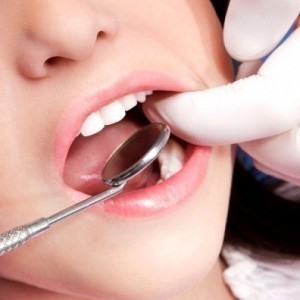Gum Disease
Gum disease is also known as periodontal disease or Periodontitis. Periodontal disease is an infection of the tissues and bone that support the teeth. Untreated gum disease can become very serious, causing teeth to become loose or fall out. Chronic Periodontitis, the most common form of the disease, progresses relatively slowly and typically becomes clinically evident in adulthood. Aggressive Periodontitis is a rarer form, but as its name implies, progresses more rapidly and becomes clinically evident in adolescence. Although the different forms of periodontitis are all caused by bacterial infections
Symptoms of Gum Disease
In the early stages, periodontitis has very few symptoms and in many individuals the disease has progressed significantly before they seek treatment. Symptoms may include the following
- Redness or bleeding of gums while brushing teeth using dental floss or biting into hard food (e.g. apples)
- bad breath, and a persistent metallic taste in the mouth
- Gingival recession, resulting in apparent lengthening of teeth.
- Deep pockets between the teeth and the
- Loose teeth, in the later stages
Patients should realize that the gingival inflammation and bone destruction are largely painless. Hence, people may wrongly assume that painless bleeding after teeth cleaning is insignificant, although this may be a symptom of progressing periodontitis in that patient.
Causes of Gum Disease
Gum disease is caused by the bacteria that are normally in the mouth. The types of bacteria may vary with some patients having more types that are associated with aggressive gum disease. The bacteria then accumulate where the gums meet the teeth. Once the bacteria cause the gums to become infected, the gums detach from the teeth.
The untreatable gum disease then spreads into the underlying bone which supports the teeth. This causes loosening of the teeth.
Treatment of Gum Disease
Once someone develops periodontitis, it isn’t as easy to control. Usually there is widespread infection of the gums that needs to be treated. This may require several special treatments either by a dentist or a periodontist, an expert who specializes in the care of gum disease.
Some of the ways dentists may treat periodontitis are
- Scaling or root planning. These deep-cleaning measures involve scraping and removing plaque and tartar from teeth above and below the gum line.
- Antibiotics. These medications are often used together with scaling and root planning to stop the spread of infection and inflammation in the mouth. They come in several different forms that range from medicated mouthwashes to antibiotic-containing gels or fibers that are placed in gum pockets to slowly kill bacteria and help gums to heal.
- Surgery. Advanced cases of periodontitis may require a dentist to open and clean badly diseased gum pockets, and then stitch the gums back into place to fit more snugly around the teeth.
For more information on Gum Disease read:


